Präzisionswaage für statistische Kontrolle
Wir empfehlen die Bestellung einer Waage mit entsprechender Eichung.

MONO
BLOCK-Technologie. Die innovative Konstruktion der Waage PS X2.M zeichnet sich durch eine neue Ein-Punkt-Befestigung der Waagschale aus, die eine hervorragende Geometrie gewährleistet und Exzentrizitätsfehler minimiert. Die Labyrinth-Konstruktion gewährleistet eine hohe Beständigkeit gegen Verschmutzung.Die

MONO
BLOCK-Technologie ermöglicht das Wägen von Lasten mit einer Ablesbarkeit von d=0,01g bei einer maximalen Belastbarkeit von 10 kg. Die stabile Basis sorgt für Stabilität des Wägesystems und hohe Stoßfestigkeit. Das interne Justiersystem garantiert Präzision und hohe Wiederholgenauigkeit der Messungen, als auch ermöglicht die Kalibrierung im gesamten Messbereich bei geringem Eigengewicht.Funktionen PS X2.M:
- Ablesbarkeit d=0,01g bei 10kg Belastbarkeit
- hohe Beständigkeit gegen Umgebungsbedingungen
- Stabilität und Wiederholbarkeit im Laufe der Zeit
-
MONO
BLOCK Technologie - interne Justierung im gesamten Messbereich
- umfangreiche Datenbanken und ALIBI-Speicher
- ergonomischer 5" Farb-Touchscreen
- berührungslose Bedienung möglich
Datenbanken
Das Gerät ermöglicht die Speicherung der fertigen Wägungen in Form von komplexen Berichten und Grafiken.
Die Daten werden in 11 Datenbanken gespeichert:
- Produkte (5.000 Produkte)
- Benutzer (100 Benutzer)
- Verpackungen (100 Verpackungen)
- Kunden (1.000 Kunden)
- Rezepturen (100 Rezepturen)
- Rezepturberichte (500 Berichte)
- Umgebungsbedingungen (10.000 Datensätze)
- Wägungen (50.000 Datensätze)
- Alibi-Speicher (512.000 Datensätze)
- Kontrollberichte (1.000 Berichte)
- Durchschnittliche Tara (1.000 Berichte).
Kommunikation
Die PS X2.M Serie ist mit folgenden Schnittstellen ausgestattet: 2 x RS 232, USB Typ A, USB Typ B, Ethernet und Wireless Connection. USB ermöglicht die schnelle Übertragung und das Kopieren von Arbeitsergebnissen (Messungen, Berichte, Datenbanken) auf einen Computer oder andere Waagen. Die Waage bietet die Möglichkeit der Datenfernüberwachung.
Erfahren Sie mehr über die Verwendung und Pflege von Edelstahlprodukten:
Rostfreier Stahl in RADWAG-Produkten. Standard- und Spezialanwendungen







.jpg)
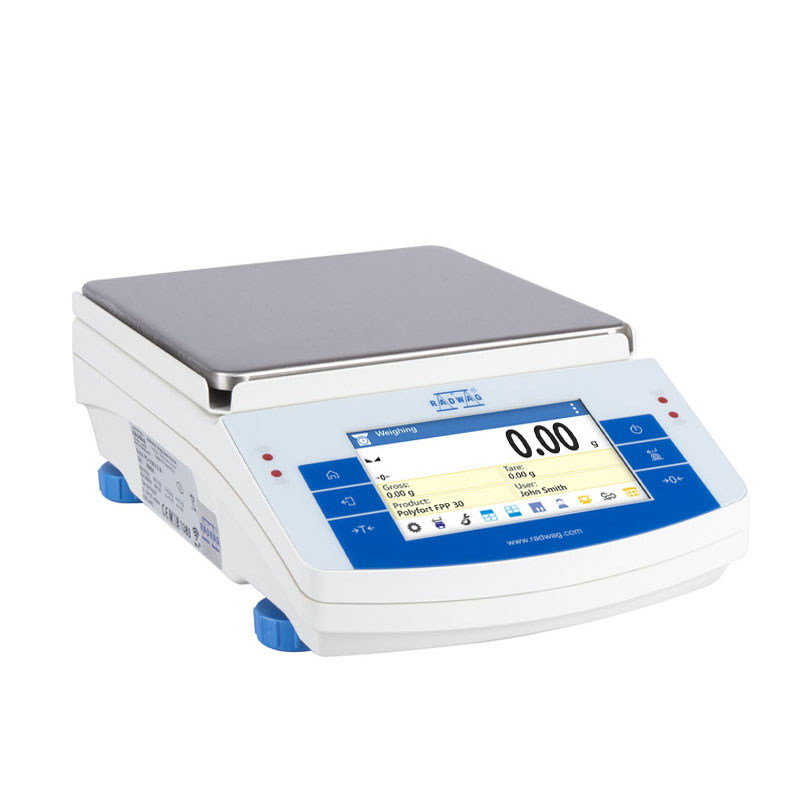
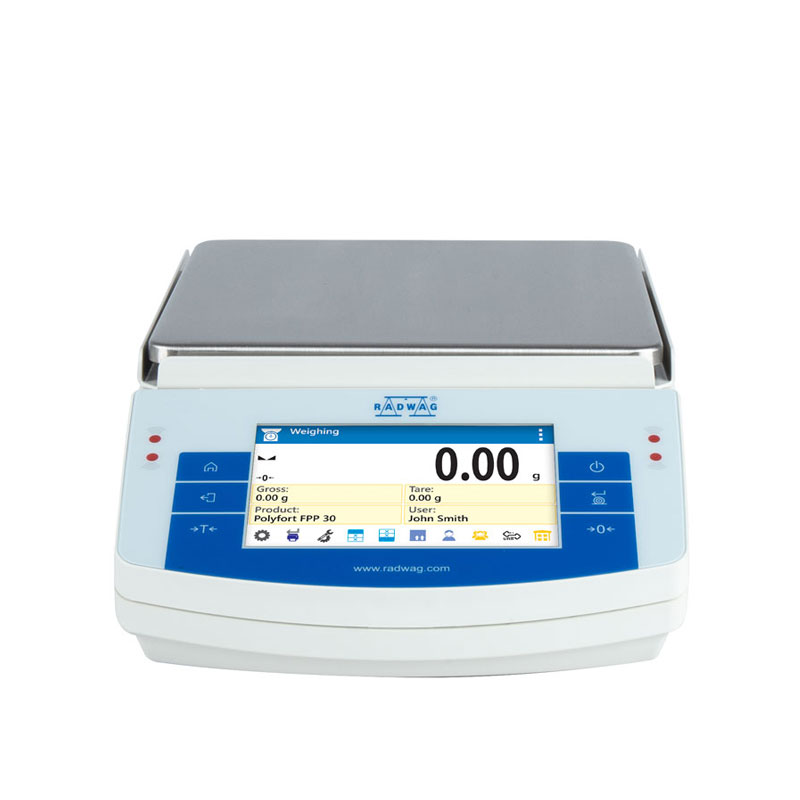
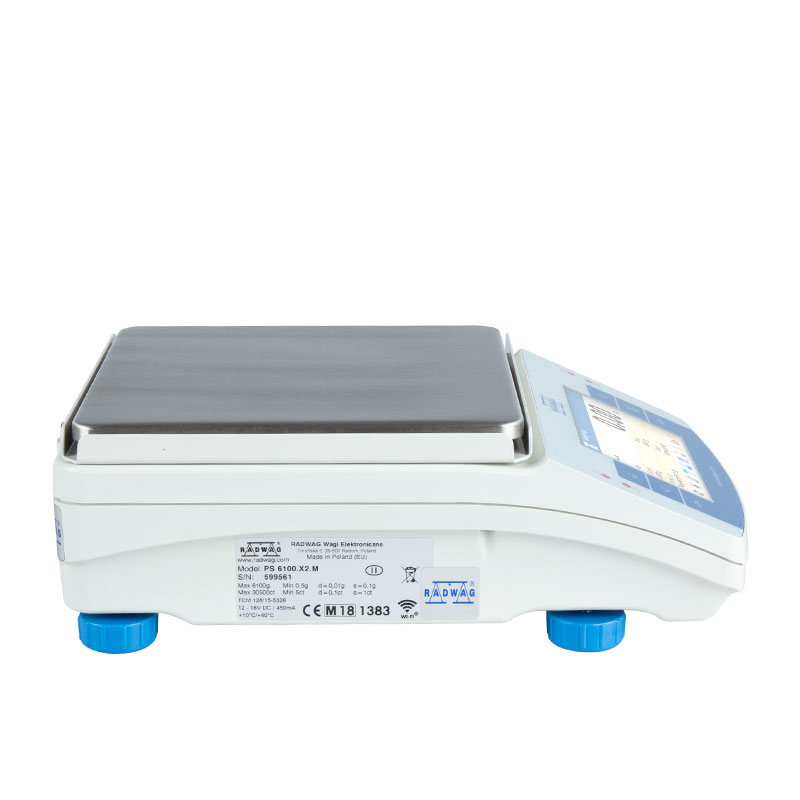
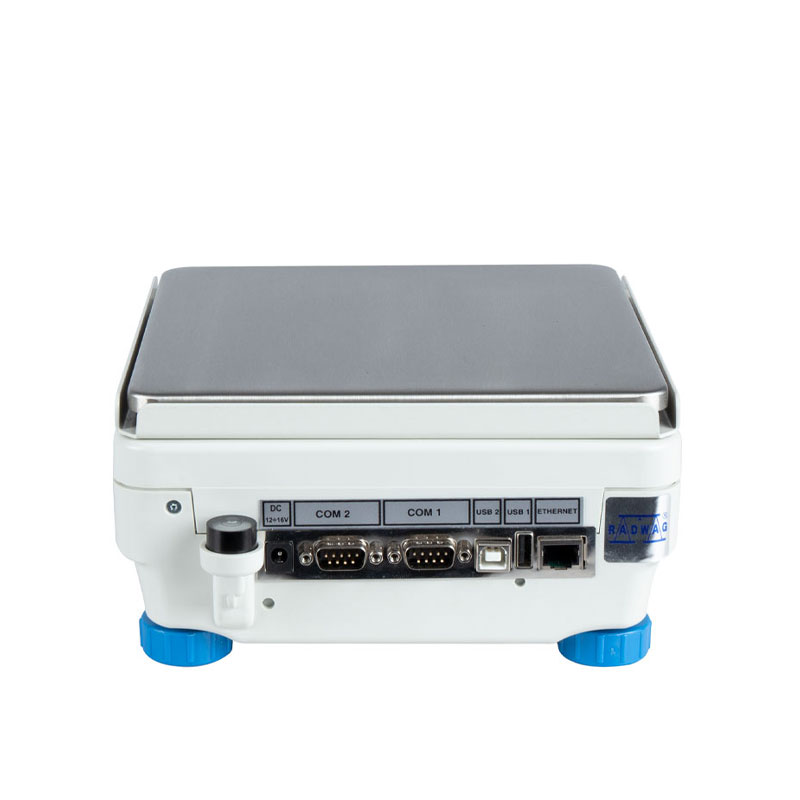
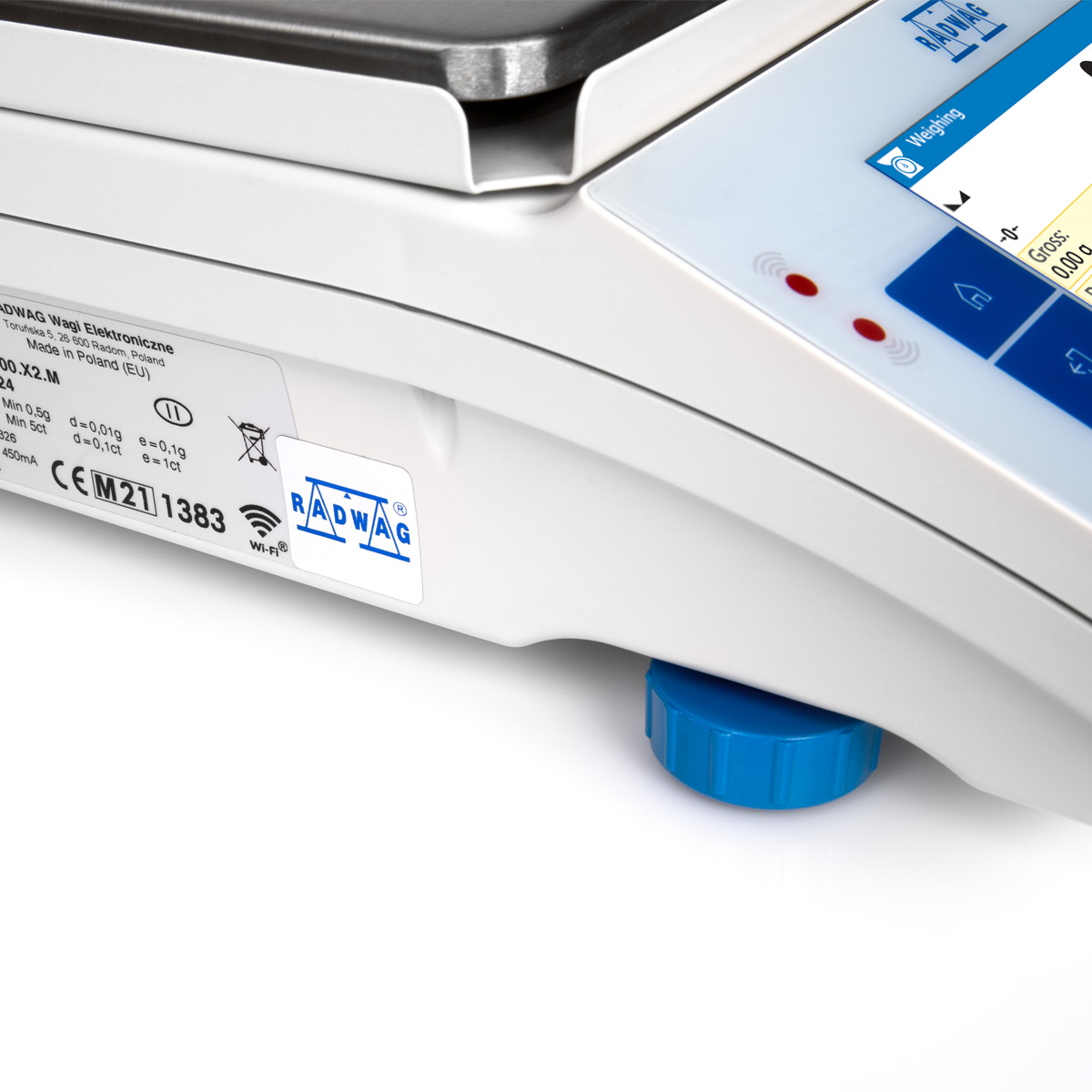
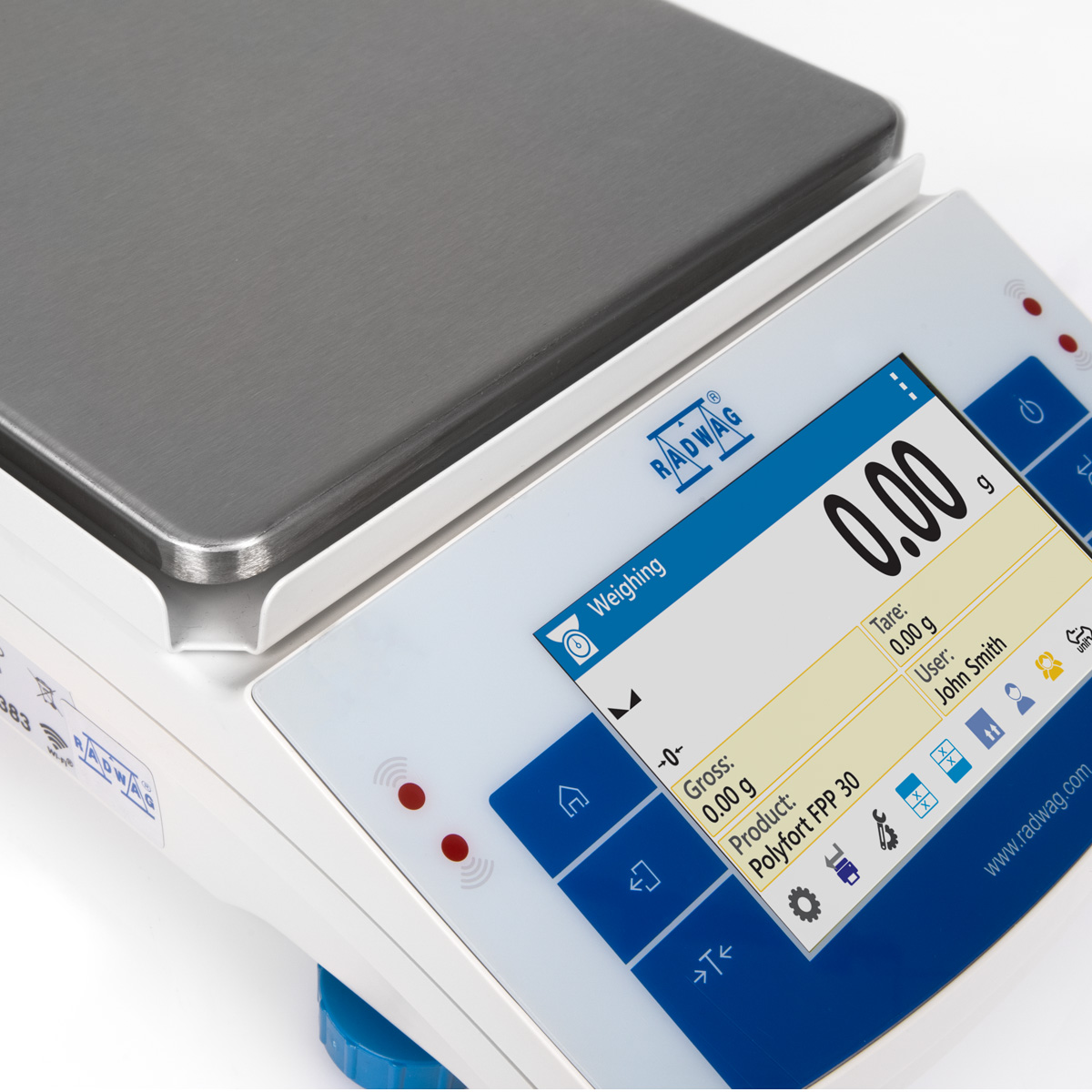
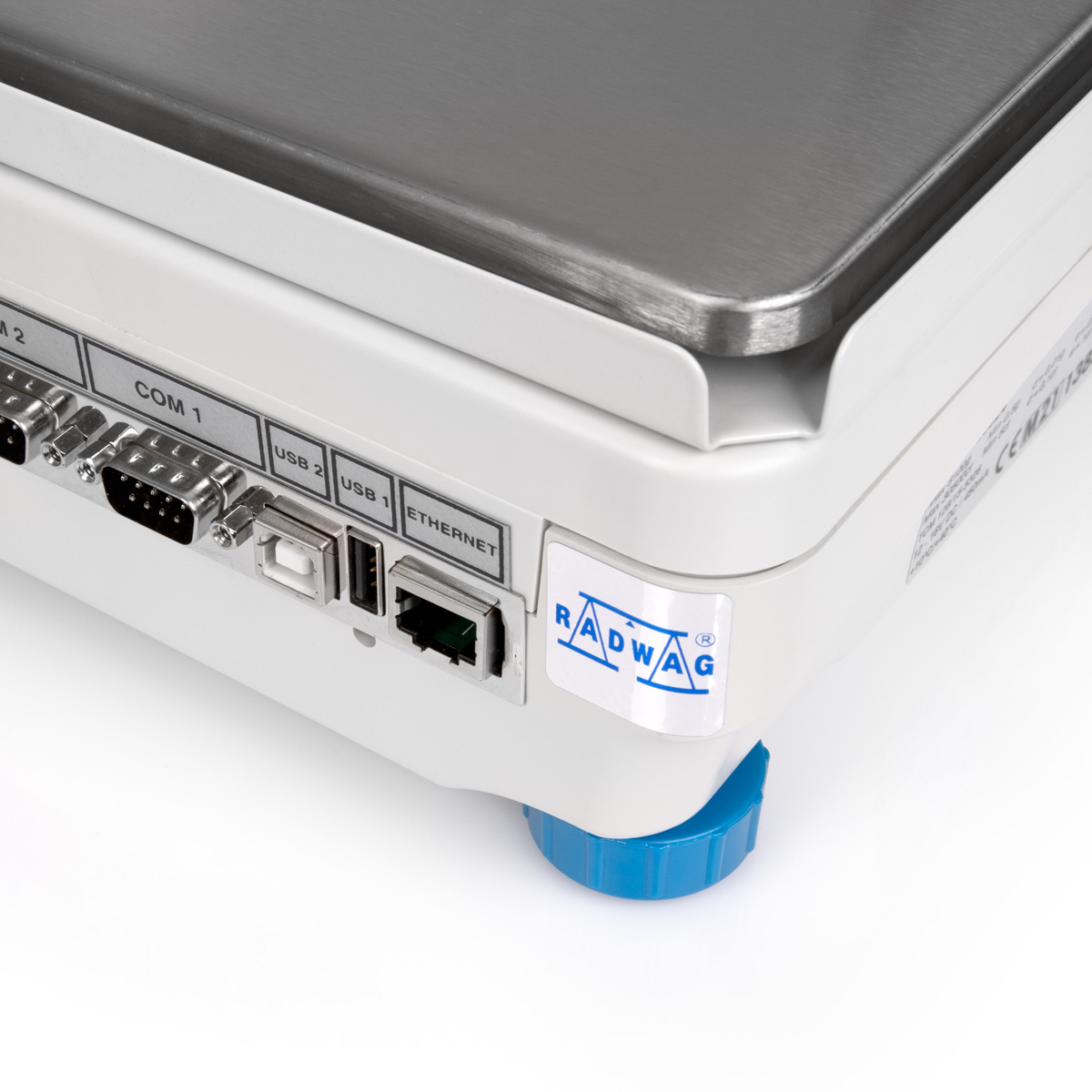



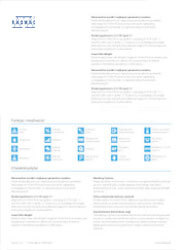









 Albanian
Albanian Danish
Danish Nederlandse
Nederlandse Estonian
Estonian Finnish
Finnish Hungarian
Hungarian Icelandic
Icelandic Kazakh
Kazakh Latvian
Latvian Lithuanian
Lithuanian Macedonian
Macedonian Norwegian
Norwegian Portuguese
Portuguese Romanian
Romanian Russian
Russian Slovak
Slovak Slovenian
Slovenian Swedish
Swedish Ukrainian
Ukrainian Serbian
Serbian Montenegrin
Montenegrin English
English Español
Español Français
Français Italiano
Italiano Japanese (日本語)
Japanese (日本語) Polski
Polski Türkiye
Türkiye Česky
Česky Português (Brasil)
Português (Brasil) 中文
中文




















